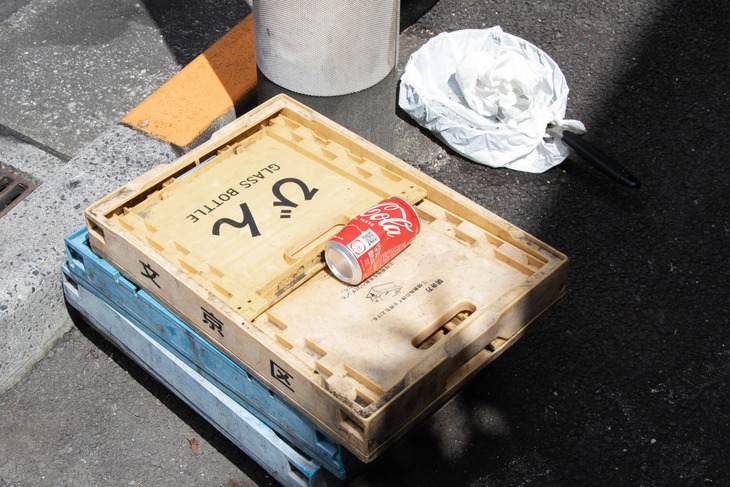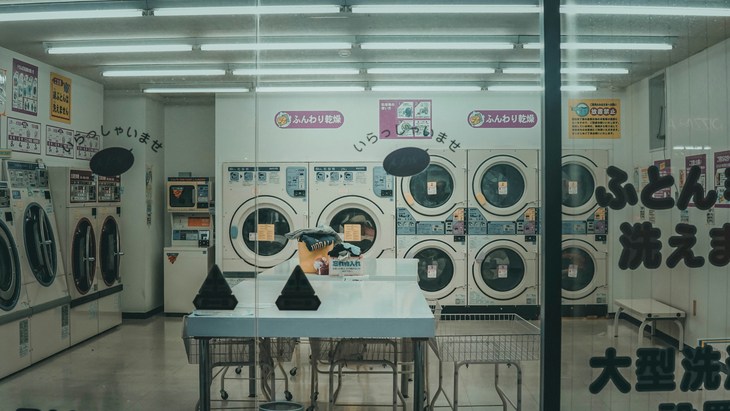Japan's Garbage Disposal Rules: Explained!
Since Japan is a mountainous island nation, garbage disposal has to be carefully managed. It isn't realistic for Japan to dump all of its garbage into large landfills like other countries with more open spaces, and therefore Japan has developed complex systems to organize and dispose of trash.
This means that if you are living in Japan, you will have to have to understand and follow the strict, and sometimes quite complicated, garbage sorting rules in Japan.
For expats who have recently moved to Japan, this can be overwhelming at first. While there are some overarching rules about trash disposal in Japan, each municipality determines its own specific rules on how to separate trash. So let's go over all the information you need to know about garbage disposal in Japan.
How Trash is Sorted in Japan
Generally, trash in Japan falls under two categories: "burnable" and "non-burnable." However, depending on where you live it may be more complicated than this.
Generally speaking, burnable trash includes food waste, paper scraps, kitchen waste, waste from gardens and yards such as leaves or tree branches, diapers, and so on.
Also included in the broad umbrella of "burnable trash" is recyclable garbage. Recyclable garbage may include plastic bottles (referred to as PET bottles in Japan), plastic containers, plastic bags, toys, leather items, newspapers, cardboard, and so on. Depending on the city, some recyclable garbage like plastic bags may simply be included in burnable trash.
Non-burnable trash generally includes glassware and ceramics (including things like broken bowls or glasses), aluminum cans, broken small appliances or umbrellas, metal items, batteries, and so on.
The big problem is that every city classifies what is "burnable," what is "recyclable garbage," and what is "non-burnable garbage" differently and has different disposal rules, so it is only possible to give a broad overview.
Some cities also have quite strict rules about how to dispose of recyclable plastics. For example, in some cities, PET bottles have to be put into separate garbage bags and disposed of on their own. But before you can dispose of them, you have to take off the cap and label from every bottle, as those are not considered the same kind of recyclable. But this can create an awkward situation where if, for example, you forget to take the label off a couple of plastic bottles, the garbage collectors won't take your bag of PET bottles. You'll have to dig through that bag, take off the labels, and then put out the bag on the next collection day.
But in other cities, you may be allowed to put plastic bottles in a broader category of garbage such as "recyclable plastics" without taking off any labels or caps.
In short, how you have to separate your garbage depends entirely on your local city's rules. Many neighborhoods host local recycling drives and workshops to educate residents about proper waste sorting and disposal. This can be a good way to not only learn how to properly recycle in your city but also to get out and meet some of your neighbors.
Disposing of Oversized Garbage & Other Kinds of Garbage
The last big hurdles are oversized garbage (think mattresses, appliances, furniture, etc.) and items that can be difficult to recycle, like electronics and batteries.
Some cities, like Tokyo, designate specific days of the month for these kinds of garbage to be picked up. Generally, for oversized garbage, you'll need to apply for the garbage to be picked up and schedule the pickup day. You'll then have to pay for a special sticker to put on the garbage, otherwise it will not be picked up. These stickers can be bought at many stores and post offices. If you are moving and need to get rid of a lot of large items at once, be sure to check when your oversized garbage can be picked up well in advance to avoid fines.
To get an estimate of how much it will cost for a large appliance to be picked up, you can check out the website below:
Click here.
Many cities have dedicated recycling facilities where you can drop off garbage such as small electronics, light bulbs, and batteries. While it will require more legwork on your part, this is a responsible way to recycle these kinds of items.
・Watch Out for Scams in Tokyo!
If you live in Tokyo and need to get rid of garbage, be careful. There are waste disposal services that advertise immediate or free garbage collection through the internet or flyers, which then end up charging excessive fees for their services.
So how do these services scam people into paying outrageous fees? There are a few ways. They may say that collecting the garbage is free, but then charge transportation or handling costs. They may load the garbage onto the truck and then suddenly give a fake reason like "this item is not eligible for free collection" to charge you. Then, if you try to back out, they may hit you with ridiculous cancellation fees.
Hundreds of people in Tokyo every year are scammed by these services, so go through the correct procedures to dispose of your garbage.
Next, let's look at how to know when to dispose of your trash.
Understanding Japan's Garbage Disposal Schedule
When you register your address at your local city hall or ward office, you should receive a calendar showing the different garbage disposal days for different kinds of trash. If you live in an apartment complex, the apartment management company may provide this to you instead. As long as you follow the calendar and put out your trash on the garbage days specified by the area you live in, you shouldn't have any problems.
Most places ask you to put out your garbage in the morning before a certain hour when the garbage collectors will come to pick up your trash. Garbage collectors may come to your home or apartment complex quite early, so if you don't put it out soon enough they won't collect it and you'll have to wait until the next designated day.
It may be possible to put out your trash at night if you or your apartment complex have dedicated trash cans or covered garbage disposal areas. But some apartments only have nets they put over the trash, which won't be put out until morning, so in those cases putting out trash at night is not an option.
Be sure to understand and check your area's collection schedule carefully so that you can always throw out your trash on the right day and don't end up kicking yourself for forgetting trash day.
What are "Designated Garbage Bags"?
One more thing to be aware of about garbage in Japan is that many municipalities require you to use "designated garbage bags" to throw out your trash.
These are specific trash bags that are usually sold at any convenience store or supermarket, and if your trash is not in one of these bags, it will not be collected. Some cities even have different colors of designated trash bags for different kinds of trash, adding an extra layer of complication to the system.
If your city does not require designated trash bags, they may have specific rules about what kinds of bags you can use. For example, some cities only allow brown paper bags to be used for burnable trash, while others specify that you need to use transparent, water-resistant bags for plastics.
Again, this all depends on the city you live in, so be sure to check the rules for your municipality to know whether you need to use designated garbage bags for your trash or not.
Check with Your City Hall For More Info!
We've given an overview of everything you need to know about sorting and disposing of your garbage in Japan, but ultimately the specifics depend entirely on where you live. Since every city in Japan has its own rules about garbage disposal there's no way we could cover everything, meaning you will need to do some of the work yourself.
When you move to Japan, or move to a new city, you'll have to go to your local city hall or ward office to register your address. At this time, you'll probably receive a stack of flyers or booklets detailing important information about your town as well as resources available to you, but be sure to check if garbage disposal rules are included! Many towns have detailed information about how to sort garbage and garbage collection schedules available in English and other languages for foreign residents, so if you're not sure you've been given this information, ask!


























